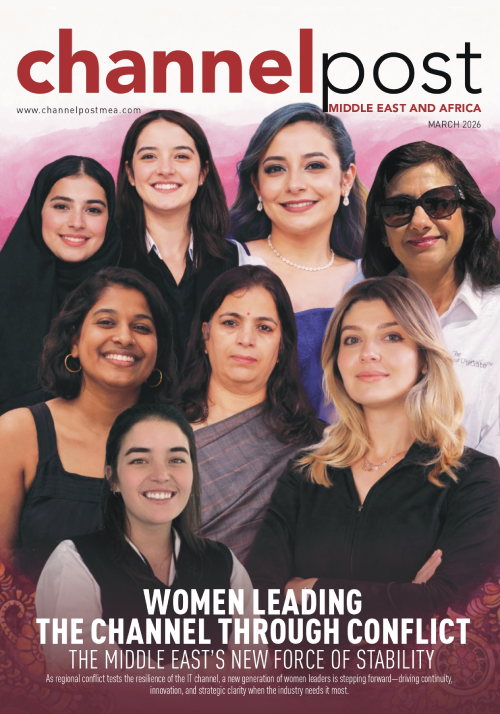A recent research by Ciena showed that more half of the adults in the UAE and KSA believe the future of internet will be driven by the desire to become energy efficient. Azz-Eddine Mansouri, General Manager at Ciena Middle East, provides more details on the research.

What was the key finding of the survey conducted by Ciena on internet consumption and future trends?
Ciena’s Future of Networks Research shows that, while sustainability and efficiency are already growing priorities for network providers, customers share this expectation and want to be more sustainable and pursue greener initiatives. In fact, 94% of respondents in the UAE and Saudi Arabia are considering doing more virtual activities to reduce their carbon footprint, including working remotely, attending online work meetings/conferences and scheduling healthcare appointments online.
In addition, the study also found that IoT and smart devices are contributing to a cleaner and greener planet, and over 90% of respondents in the Saudi Arabia and the UAE see the benefits they are set to bring, with convenience and easier lifestyle, and improved efficiency cited amongst the top. This can also be explained by the growing number of people using smart home systems and consumption control devices (46% in the Saudi Arabia and 40% in the UAE).
What will drive the future of internet?
Our research shows that customers are looking to leverage the power of the internet to drive a more sustainable and greener world and that more than half of the adults in the UAE (54%) and Saudi Arabia (57%) believe the future of the internet will be driven by our desire to become more energy efficient.
There is an eruption in network demand happening, driven by ultra-mobile users who want the ability to access the cloud and consume high-definition content, video, and applications when and where they so choose. This disruption of the network will only be exacerbated by the rapid and ongoing adoption of the Internet of Things (IoT) and 5G, the use of which involves billions of devices interacting with machines, users, and clouds to drive consumer and business interactions.
These market dynamics are placing new demands on metro and edge networks as there is a clear need to evolve the network to make it more efficient and reduce energy consumption.
Hence, the networks of the future need to handle the growing demands of new applications, services and tools and it’s paramount that network providers will start getting closer to the end users and deliver a seamless customer experience.
How is sustainability and connected industry driving the digital landscape of GCC?
Sustainability and connected industry are two of the main drivers for the digital landscape’s advancements in the region, and are also driving network providers in the UAE and Saudi Arabia to look for better ways to answer the growing consumer needs. For instance, the UAE’s Telecommunications Regulatory Authority (TRA) promotes the use of information and communications technology (ICT) to fulfil its organisational mission to be a leading organisation in the ICT sector while encouraging innovation and investment in green economy initiatives, among others.
With federal strategies in place to promote the use of blockchain, artificial intelligence (AI), big data and smart mobility, the role of ICTs has never been more important in achieving the UAE’s goals of a thriving green economy.
Indeed, there’s a greater desire to support a more connected, energy-efficient world, through smart devices, connected industries, and new applications underpinned by high expectations for service reliability; and those are all important drivers to the fast-paced digital landscape in some GCC countries like UAE and Saudi Arabia.
What is the potential of GCC 5G market?
The 5G technology in the GCC has been exponentially growing thanks to the fast deployment from the governments and the well-defined ICT and economic diversification visions. 5G has the potential to dramatically increase data traffic and, therefore infrastructure required to handle it, which could result in a two- to three-fold increase in energy consumption, according to a GSMA Energy Efficiency Report.
The 5G is very promising in the GCC region and its access is higher than other surveyed markets, with 27% respondents in the UAE and 33% in KSA saying they already have access to 5G. In addition, 85% in the KSA and 74% in the UAE believe they will have better access to the internet when 5G is widely available.
How does Ciena meet the customer expectations of futuristic solutions?
Ciena is focused on helping service providers create networks that can adapt to changing user demands for more content and greater connectivity. We provide intelligent automation capabilities, guided by streaming telemetry, data-driven analytics and intent-based policies to help our customers create networks that can rapidly scale, self-configure, and self-optimize by constantly assessing network pressures and demands.
Being first to market with the new technology means our customers can realise the benefits of networking efficiencies earlier. In fact, network providers deploying Ciena systems have been able to save over 3 million metric tons of Carbon Dioxide emissions while still meeting capacity demands.
Furthermore, in fiscal year 2020, Ciena introduced the industry’s first single wavelength 800G solution with WaveLogic 5 Extreme (WL5e) offering 50% more capacity and 50% less space and power consumption as compared to the previous generation. This has also enabled 20 times more capacity over fiber, allowing service providers to extend the life of existing network resources.












